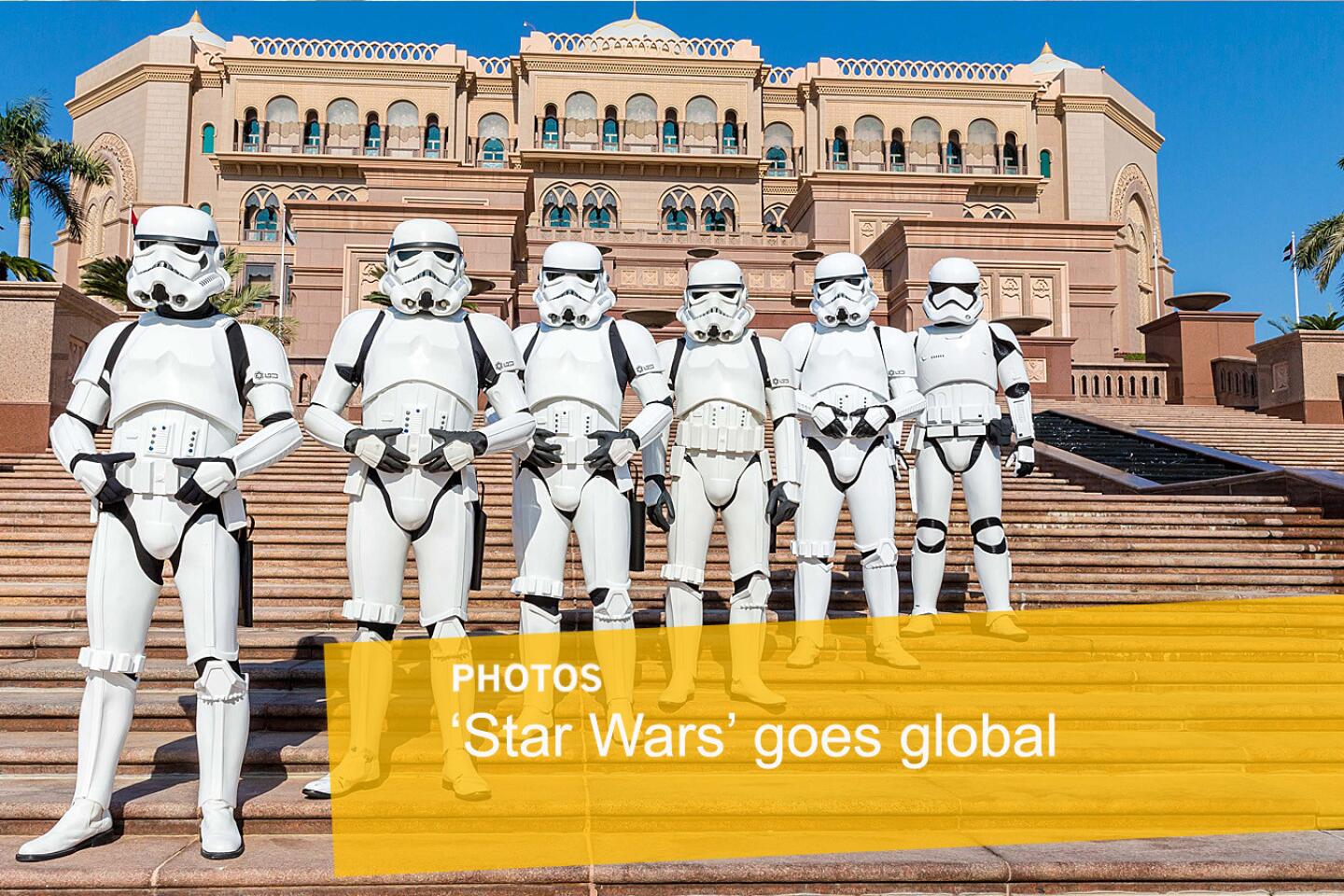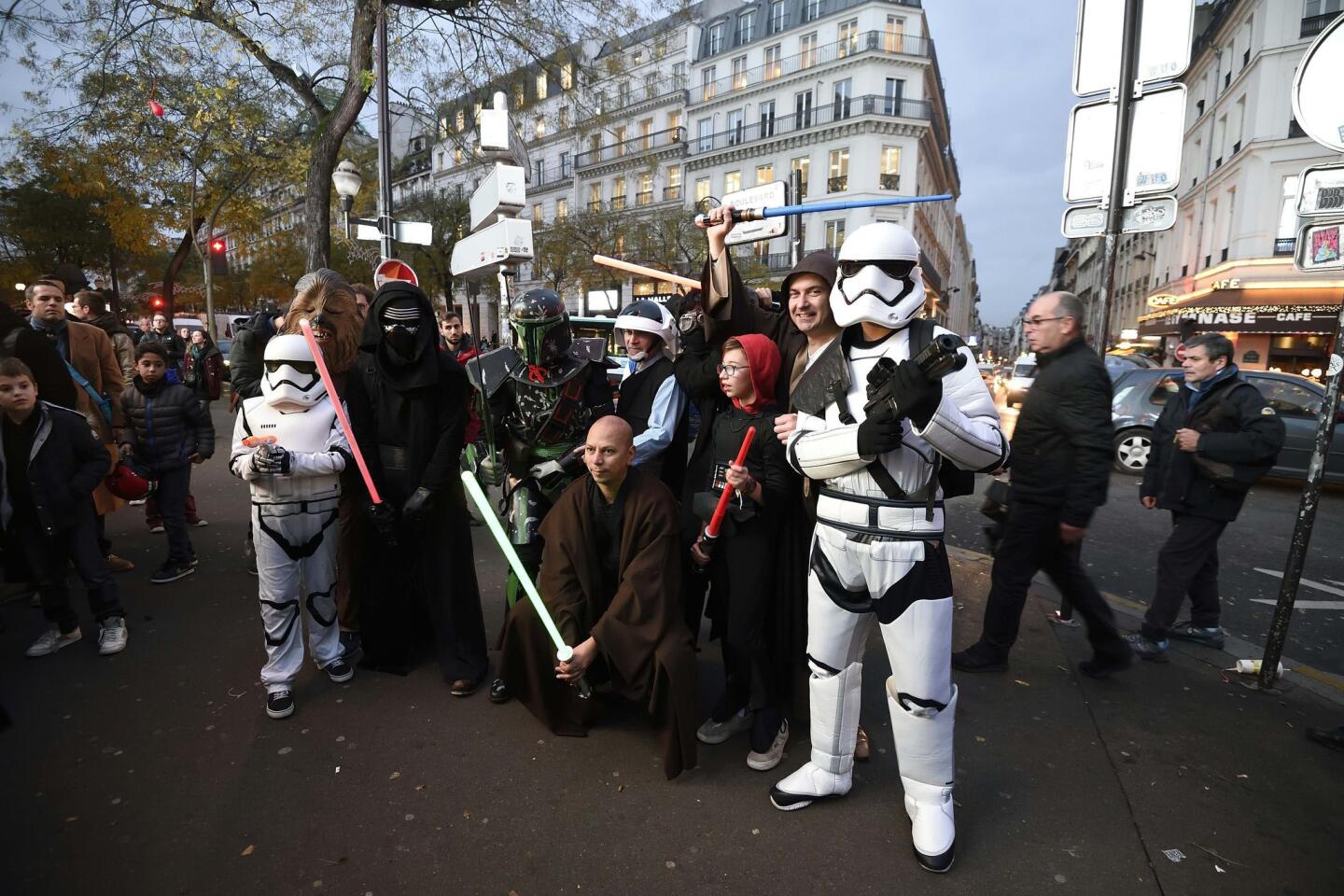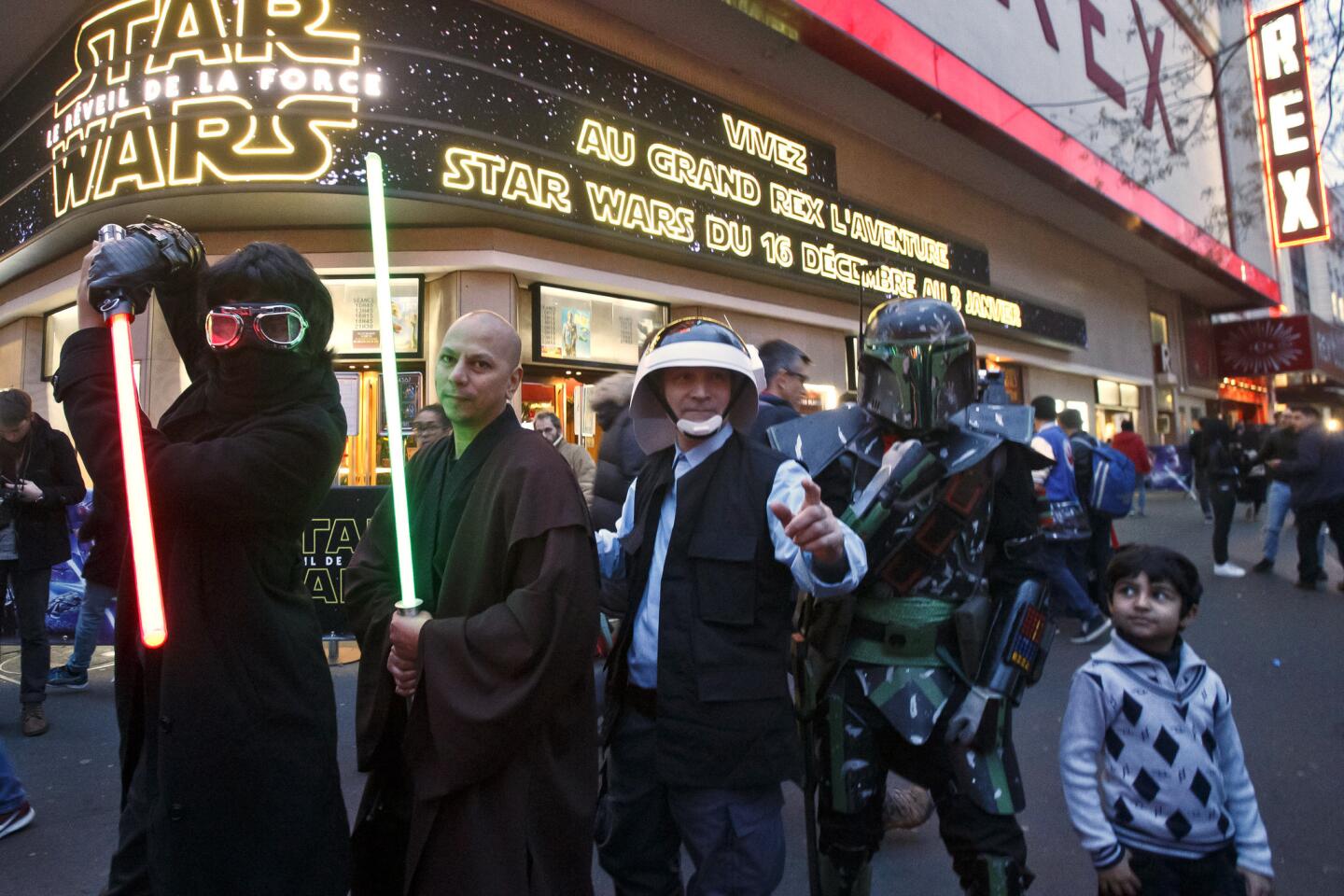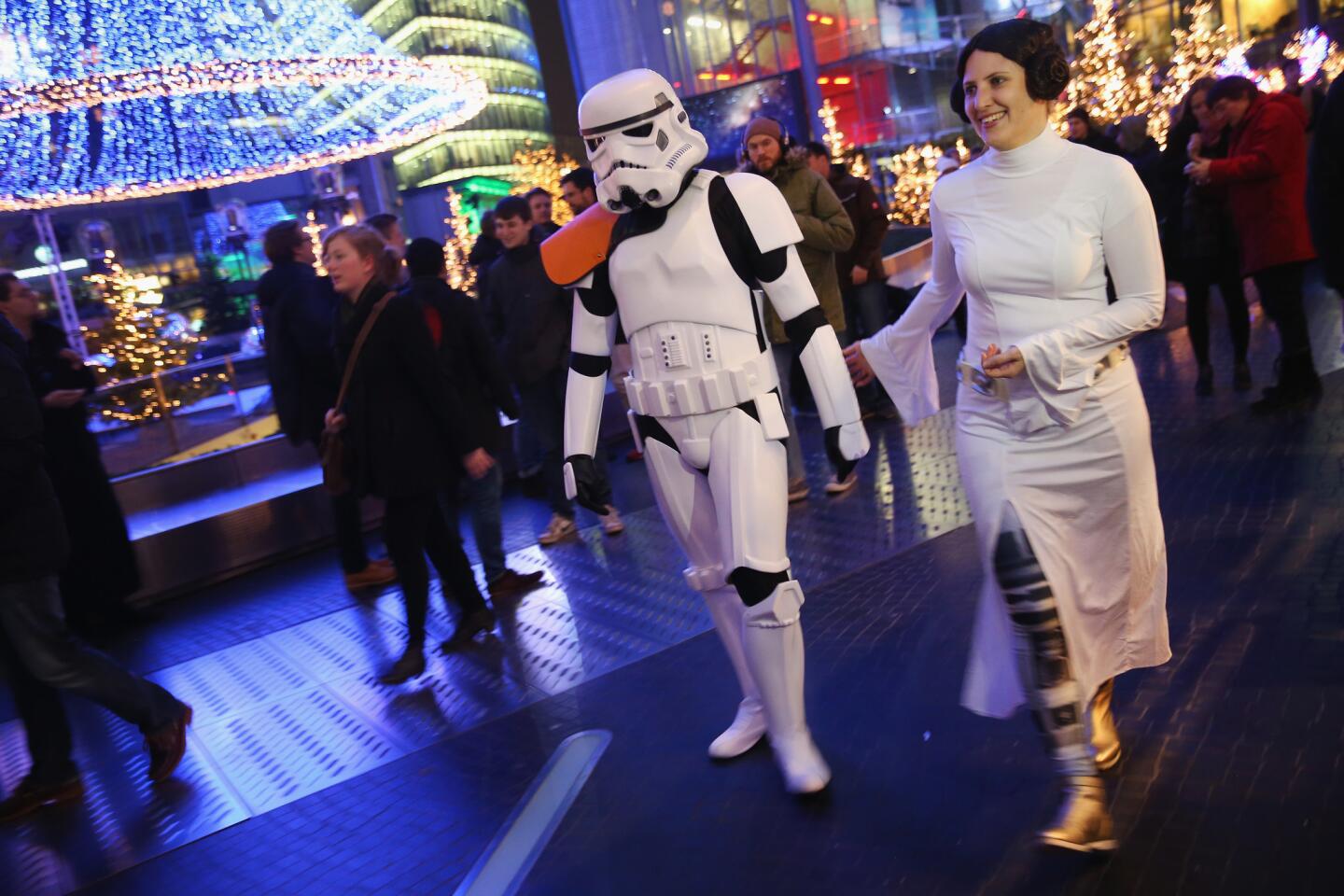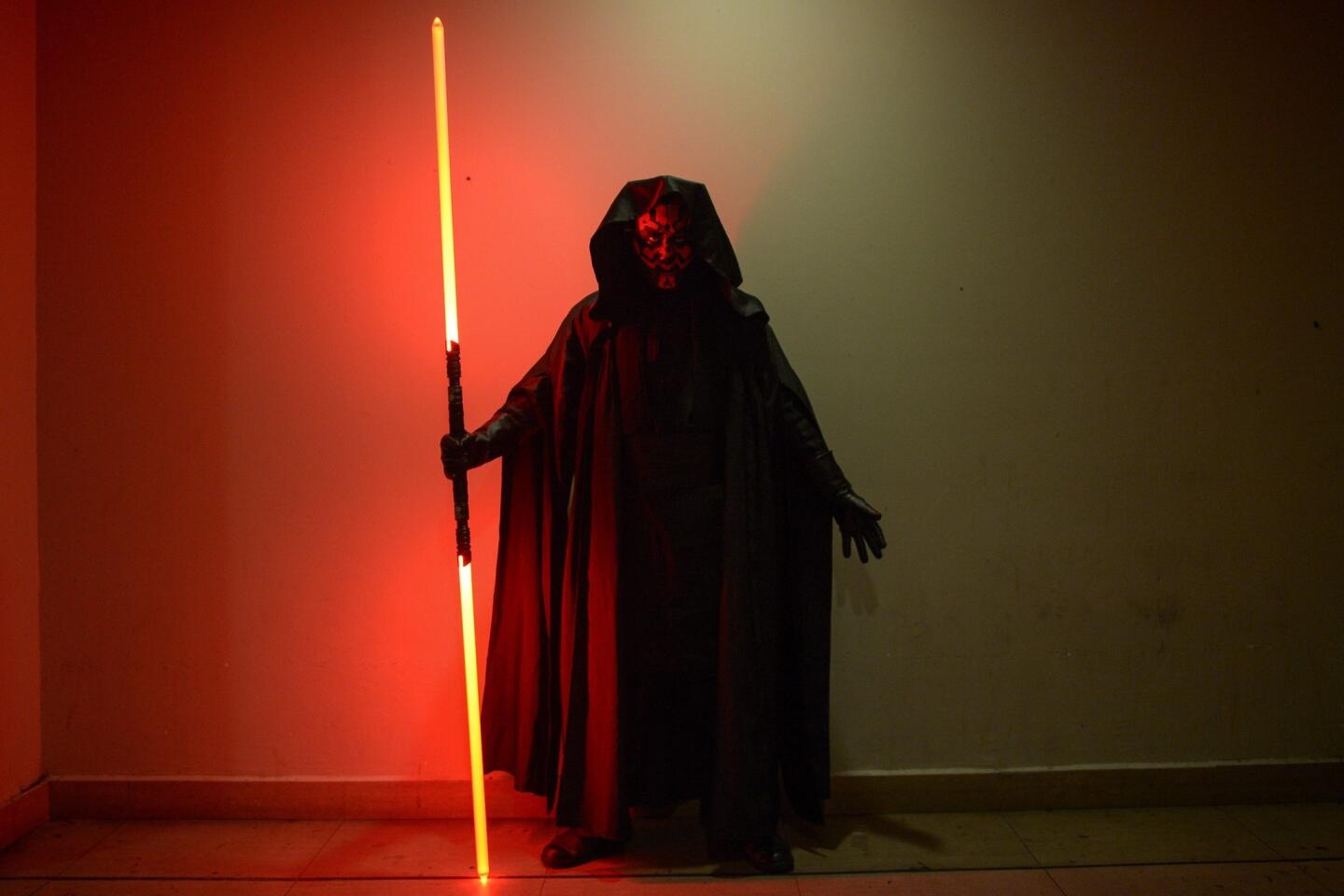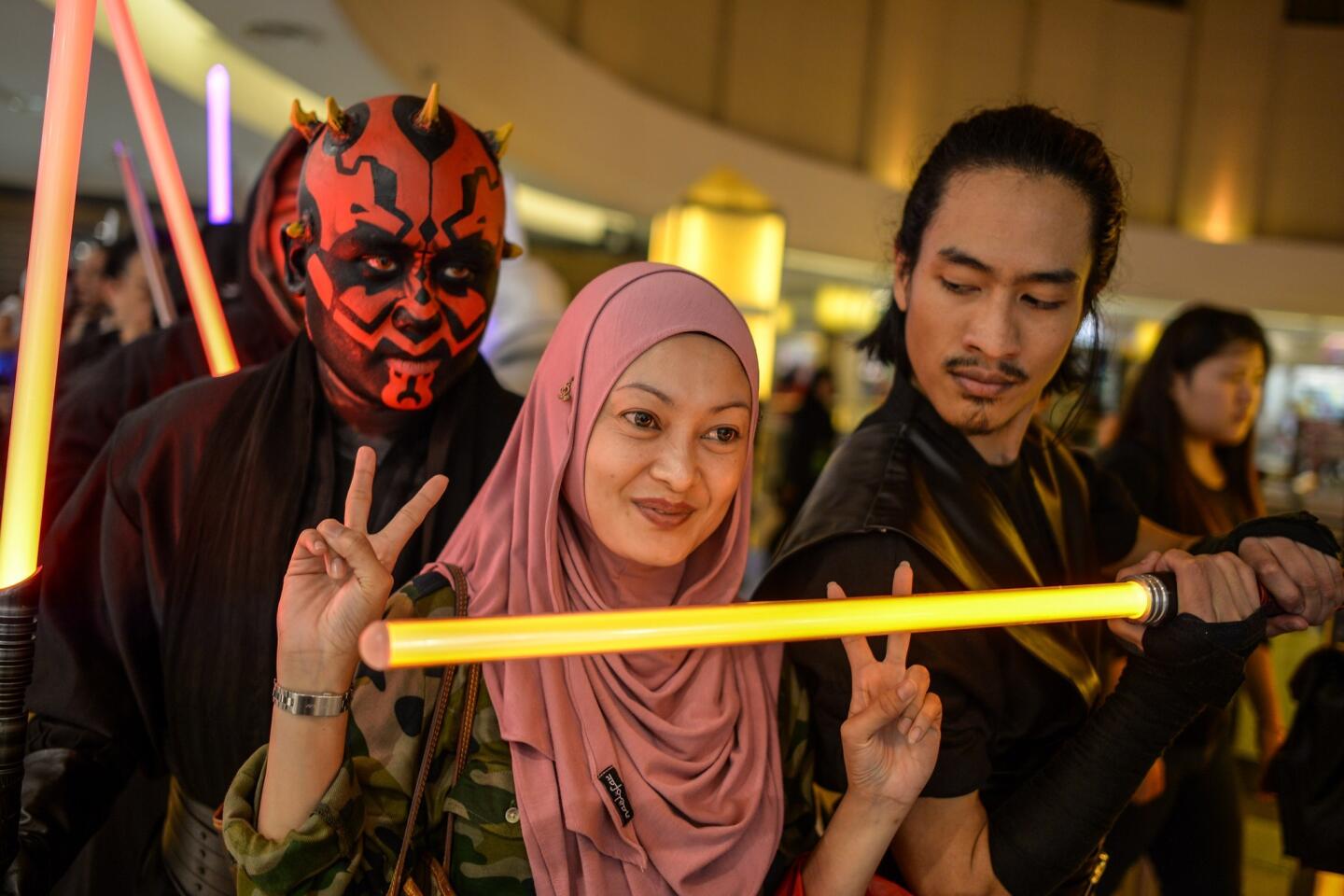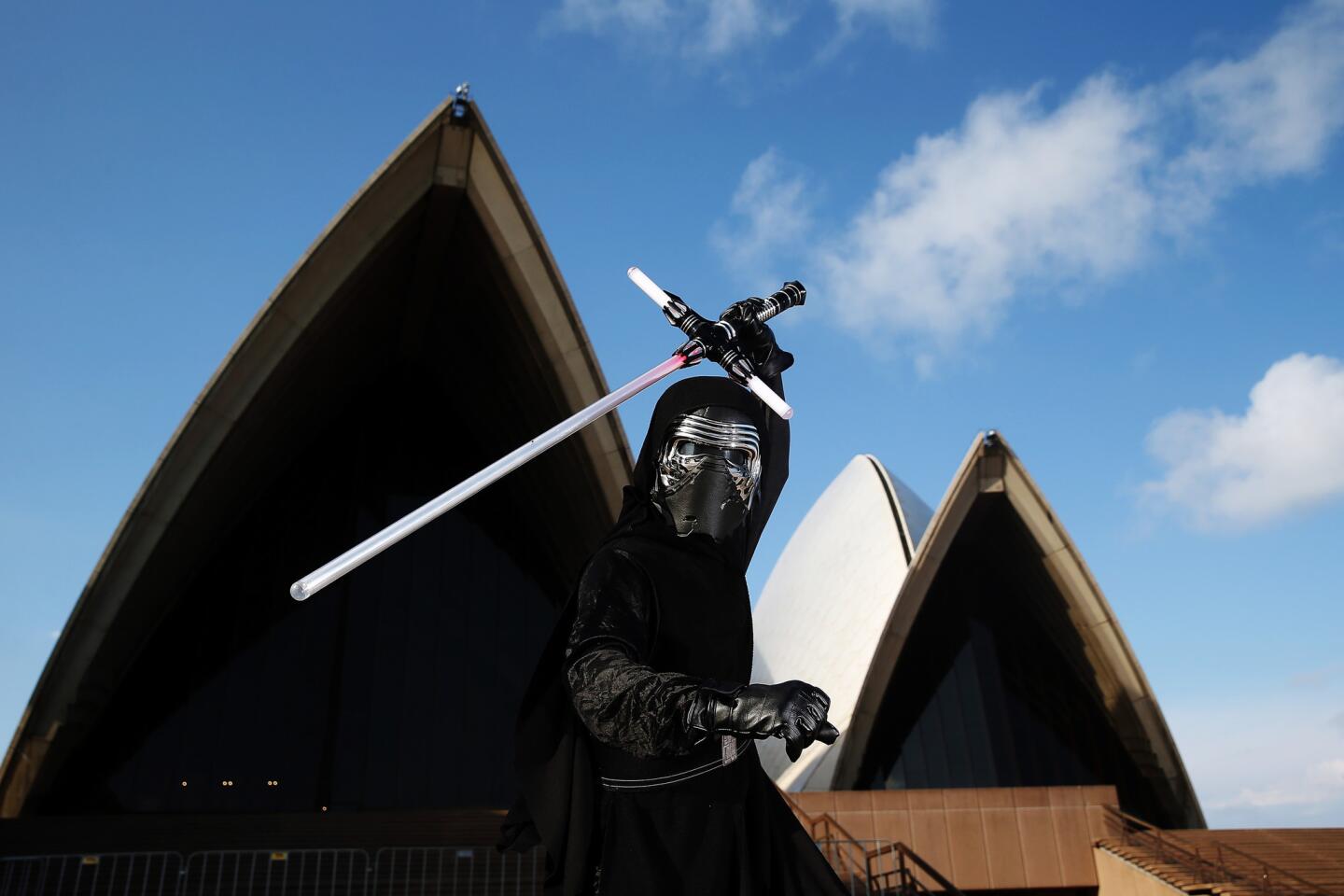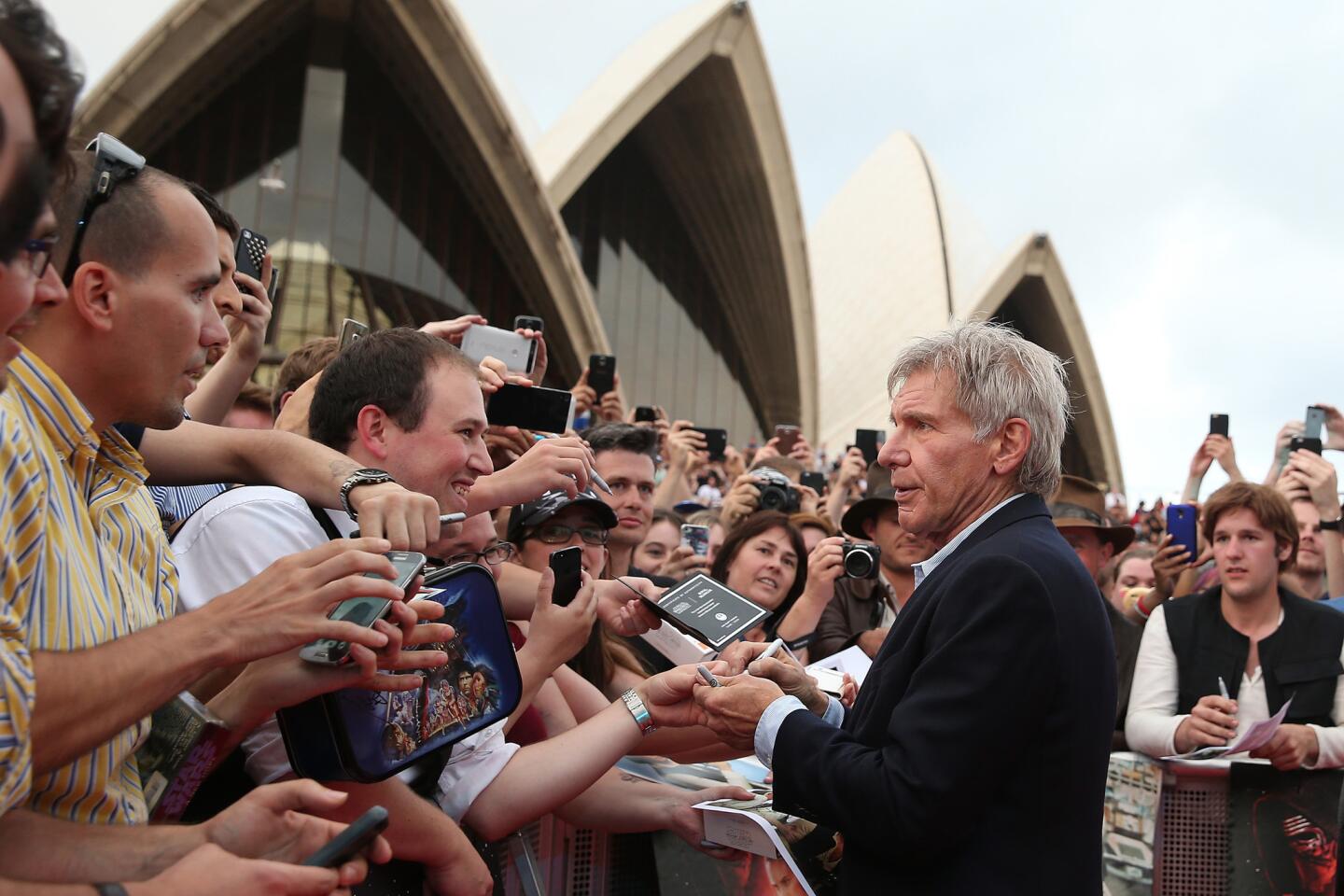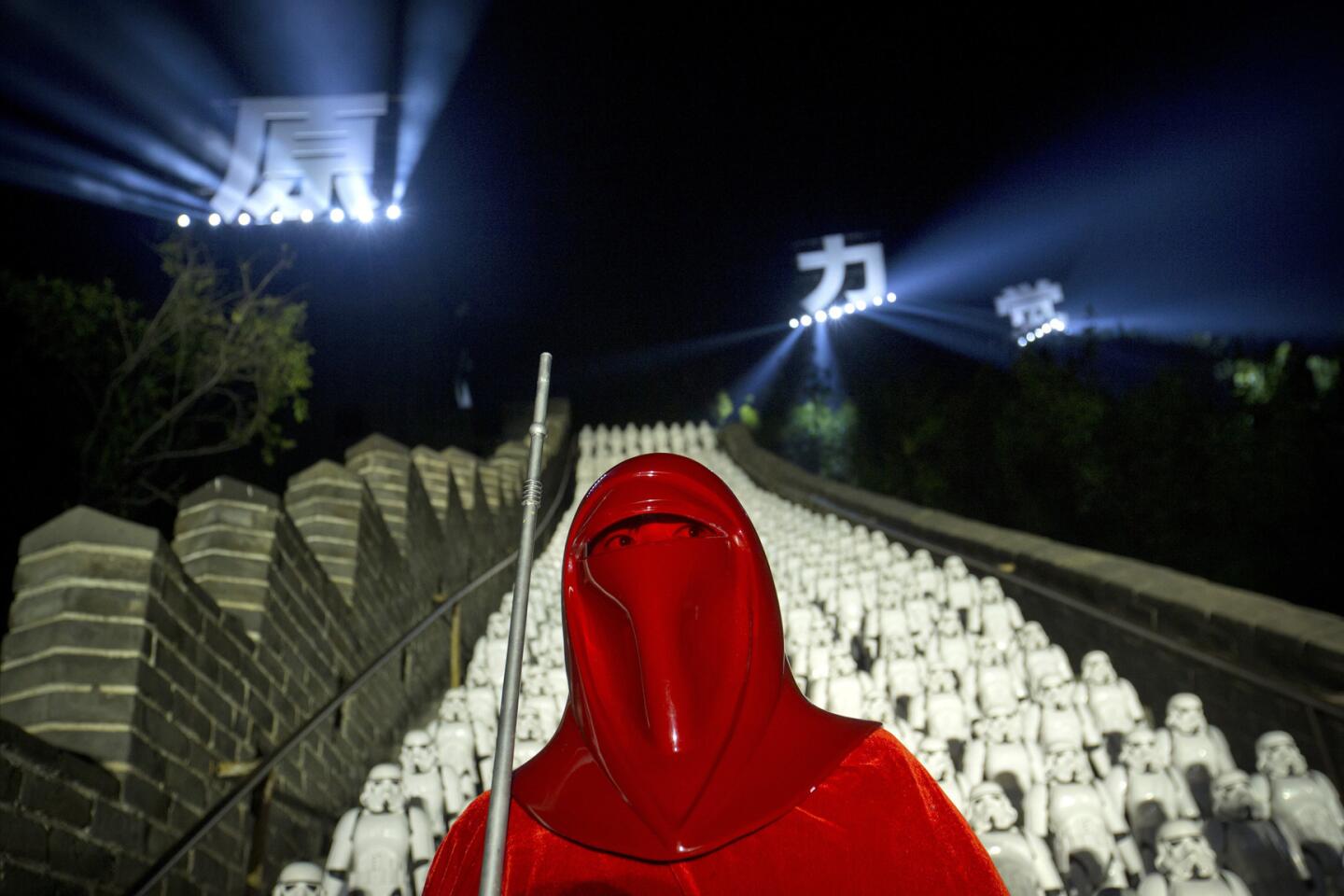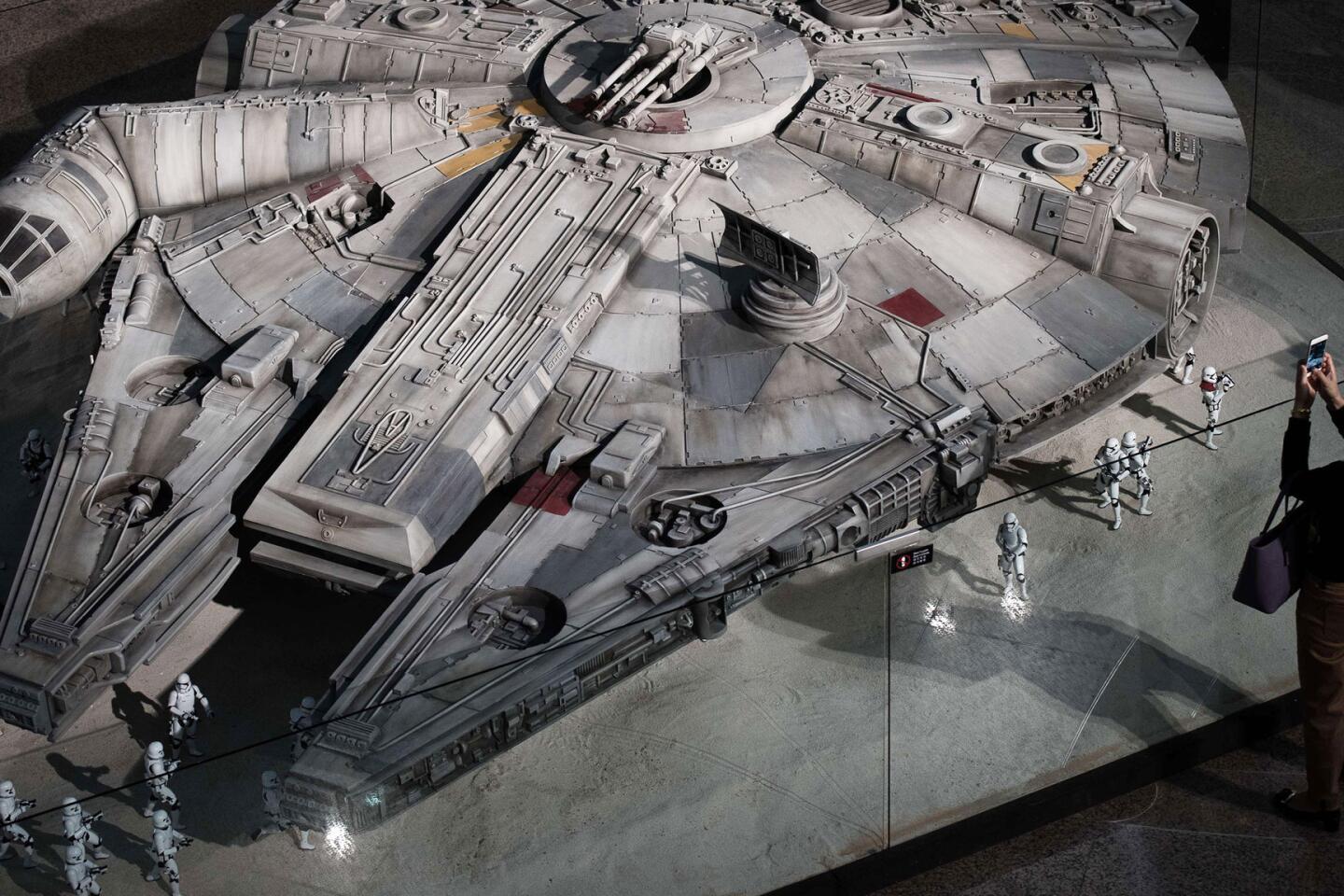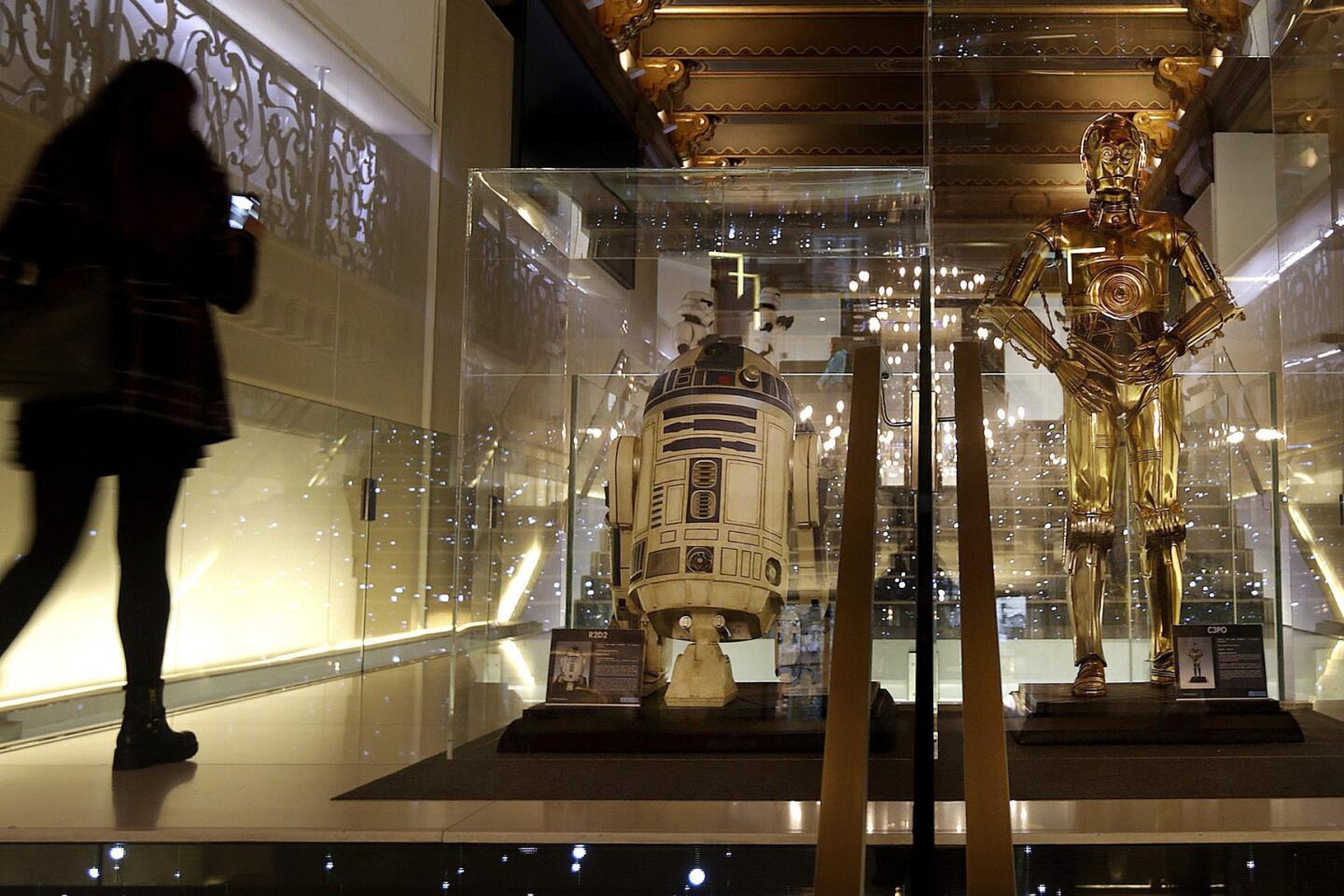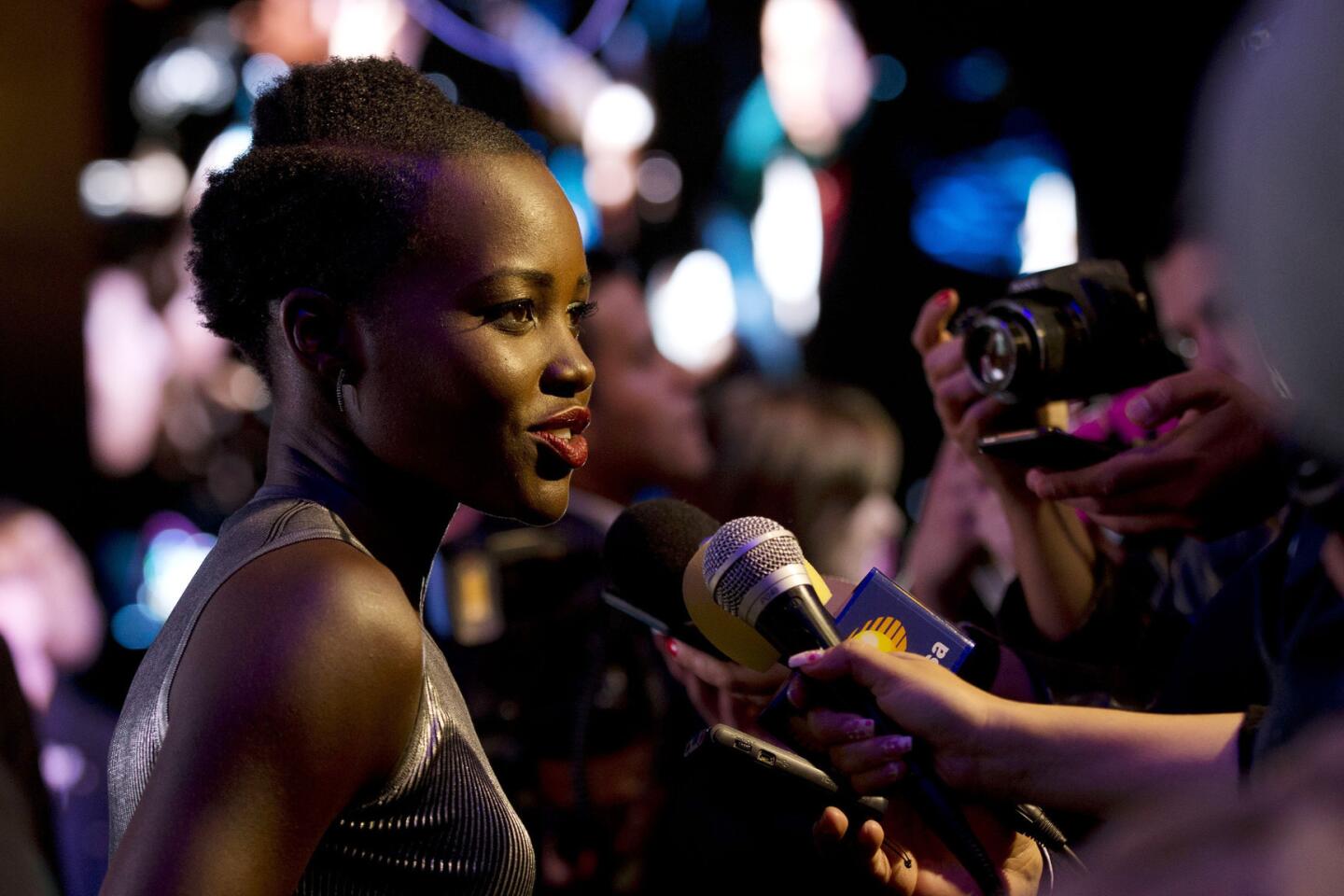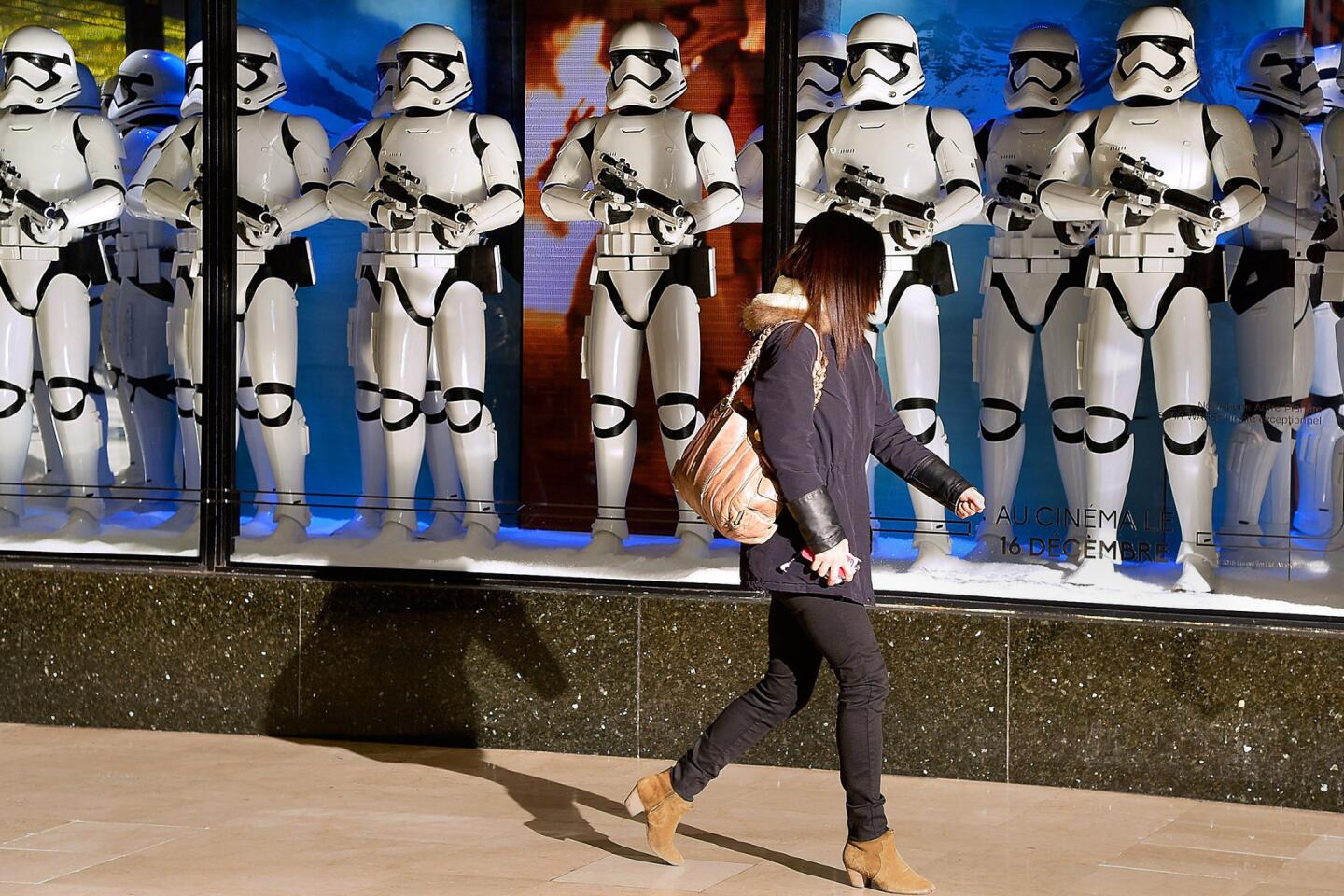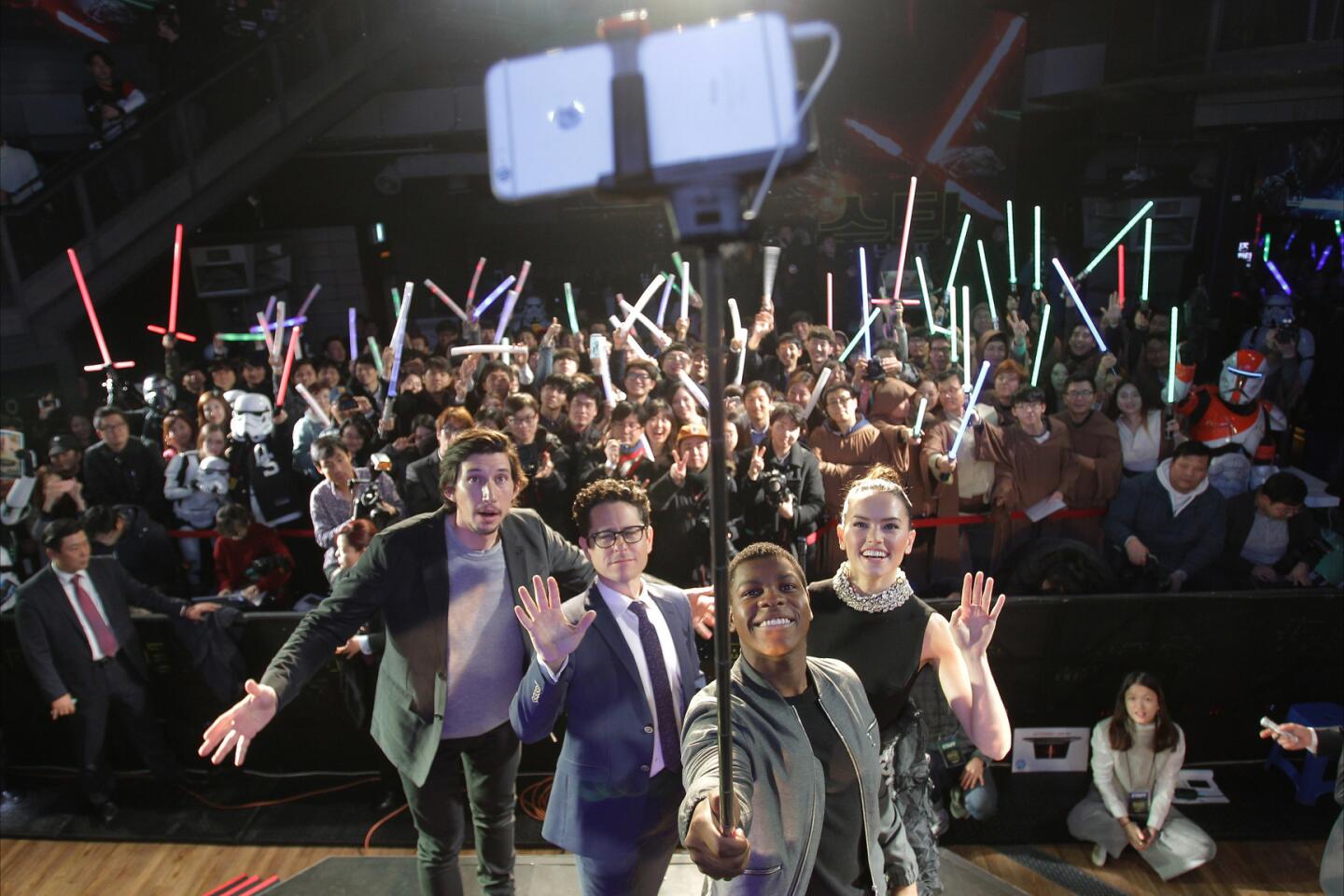Will ‘Star Wars’ be a force in China?
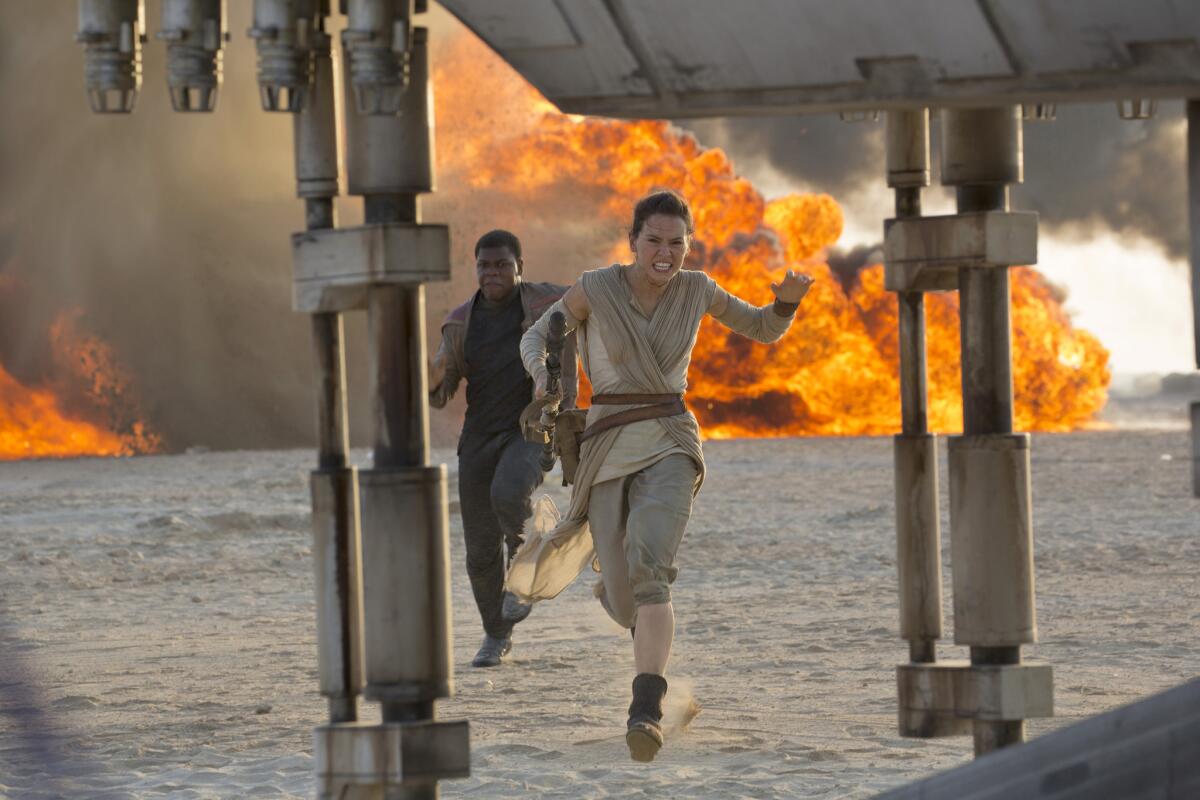
Daisy Ridley and John Boyega in “Star Wars: The Force Awakens.”
- Share via
Reporting from Beijing — Sports marketing specialist Luo Ranfeng is a “Star Wars” superfan.
The 28-year-old spends much of his spare time helping to run the biggest Chinese website devoted to the epic space opera, starwarschina.com. The Beijing resident met his fiancee on the fan site, and when they get married this summer, he hopes that some of his friends will dress up in “Star Wars” costumes.
Last month Luo traveled 1,200 miles from Beijing to Hong Kong to watch “Star Wars: The Force Awakens,” because the film opened in cinemas there several weeks ahead of its mainland China debut. He almost “burst into tears” when he saw the “Star Wars” logo come on the screen and then Han Solo and Chewbacca appeared.
See more of Entertainment’s top stories on Facebook >>
While millions of Americans share Luo’s passion for all things Jedi, in mainland China he remains a rare breed. Although the country of 1.4 billion has an exploding base of moviegoers who are expected to push the country’s box-office receipts past those in North America by 2017, few Chinese have ever seen a “Star Wars” film in theaters, nor are they nostalgic for R2D2, C-3PO or Han Solo (or even know the difference between them). Until the last few weeks, Luo’s website was getting just 2,000 visitors per day.
That’s forced Disney to work particularly hard to seed interest in “Star Wars: The Force Awakens” in China as the studio chases global box-office records. With “Star Wars” finally opening in China on Saturday, three weeks after the U.S. and many other countries, the movie is poised to quickly overtake “Jurassic World” as the third-highest-grossing film ever worldwide (not adjusted for inflation).
But with about $1.58 billion in receipts so far, “The Force Awakens” still needs $600 million more to surpass “Titanic” and $1.2 billion more to steal the No. 1 spot from “Avatar.” Although some Chinese cinema chain bosses have predicted that the film could sell $300 million in tickets here, few believe it will displace “Furious 7” as the top-grossing Hollywood film ever in China, with about $380 million.
Disney representatives refused to comment on their expectations for the film. But unlike an increasing number of American tent-pole films that have done bigger business in China than stateside, the new “Star Wars” clearly won’t touch the film’s U.S. extraordinary haul, which is expected to surpass $800 million this weekend. The film already is the highest-grossing film of all time in North America.
“It’s clear they’re pulling out all the stops and trying to make it a very big film,” said Rance Pow, president of film industry consulting firm Artisan Gateway. “Could it be the biggest film of all time? Probably not.”
Disney’s publicity push began in earnest last summer. The company arranged to have all six previous episodes shown at the Shanghai International Film Festival — the first time that the full series has been presented on the big screen in the mainland.
After that, the studio sent Stormtroopers to the Great Wall, had “Star Wars” characters appear on a November TV gala and recruited teenage heartthrob Lu Han — whom some call the Chinese Justin Bieber — to serve as the film’s ambassador.
The singer-actor released an exclusive song, “The Inner Force,” whose video is essentially a montage of clips from the film, intercut with shots of Lu dancing, rather inexplicably, in what looks like an abandoned warehouse and then donning a Jedi-style robe.
“Drive your breath with laser light,” he sings. “Turn it up loud and wind it up, I’m the leading actor, ‘cause I’m feeling the force.” (Lu does not appear in the movie.)
Although Hollywood studios have been pushing for more simultaneous releases in China to combat piracy, the three-week delay faced by “The Force Awakens” may have some upside, said Raymond Zhou, film critic for the China Daily newspaper.
“Since no [good] pirated copy has come out, unlike ‘The Revenant’ and ‘The Hateful 8,’ the delayed release should help its performance in China,” Zhou said. “The good news trickling from the States has raised curiosity here and justified much wider press coverage than it would have gotten if it had gone for a day and date strategy.”
But others say the delay is a big loss for Disney. “It completely undermines the release in China,” said one person who closely Hollywood studios’ performance on the mainland and asked not to be identified for fear of damaging his business relationship with Disney.
When the original “Star Wars” took America by storm in 1977, China was, for all intents and purposes, in a different universe. The country was just emerging from the tumultuous 1966-76 Cultural Revolution, and Western entertainment was still verboten.
When “Star Wars” screened in the early 1980s as part of an American film festival, it “was a time of reckoning and reflection.... We were not ready for entertainment and we did not care much for the then-revolutionary special effects,” Zhou said.
In 1988, “The Empire Strikes Back” aired on Chinese television, but many households didn’t even have sets then, Zhou recalled. When “Episode III: Revenge of the Sith” arrived in Chinese theaters in 2005, it made just $9 million, according to boxofficemojo.com. (The movie sold $380 million in tickets in North America.)
Pei Chenglin, 26, a designer for an architecture firm in Beijing, said had he watched all the “Star Wars” films on TV when he was young but he doesn’t remember the plot, wasn’t a sci-fi fan and had read some middling reviews of Episode VII. “I won’t spend 100 yuan [$15] on this,” he said.
Wu Renchu, a Shanghai-based movie critic, said he thought that Disney had done a good job of promoting the film. “Some people are saying that ‘Star Wars’ has no cultural roots in China and Chinese are not familiar with the subject,” Wu said. “But I don’t see any worries about the box office,” he said, pointing to more than 450,000 pre-sold tickets on one online platform, Gewara, alone.
Xiong Shuyi, 21, a senior at Shanghai Foreign Studies University, said she was a fan of Lu Han. In the past, she’s gotten together with other of his acolytes to go see his movies, but this time no such group outing was planned. “But I’ll go watch ‘Star Wars’ anyway, because he is the Chinese ambassador,” she said.
Those who go to Chinese cinemas this weekend looking to see something other than “Star Wars” will find their choices rather limited. At Beijing’s Poly Cinemas, 25 of 27 screenings scheduled for Saturday were for “Star Wars,” while at the Wanda Cinema in the central business district, 38 of 57 showings are for the movie.
Huang Jingqi, 34, an employee of a computer game company, arrived at the Lumiere theater in central Beijing at 10 p.m. Friday to wait for the midnight screening.
“I haven’t seen the previous films, but there must be some real good stuff about ‘Star Wars,’ or it won’t have seven films now,” he said, adding that he had seen an exhibit of “Star Wars” paraphernalia at another local mall. “I heard a lot about ‘Star Wars’ in ‘The Big Bang Theory,’ which is how I developed my interest in the film.”
Yingzhi Yang and Alex Li in the Times Beijing bureau contributed to this report.
More to Read
Sign up for The Envelope
Get exclusive awards season news, in-depth interviews and columnist Glenn Whipp’s must-read analysis straight to your inbox.
You may occasionally receive promotional content from the Los Angeles Times.
